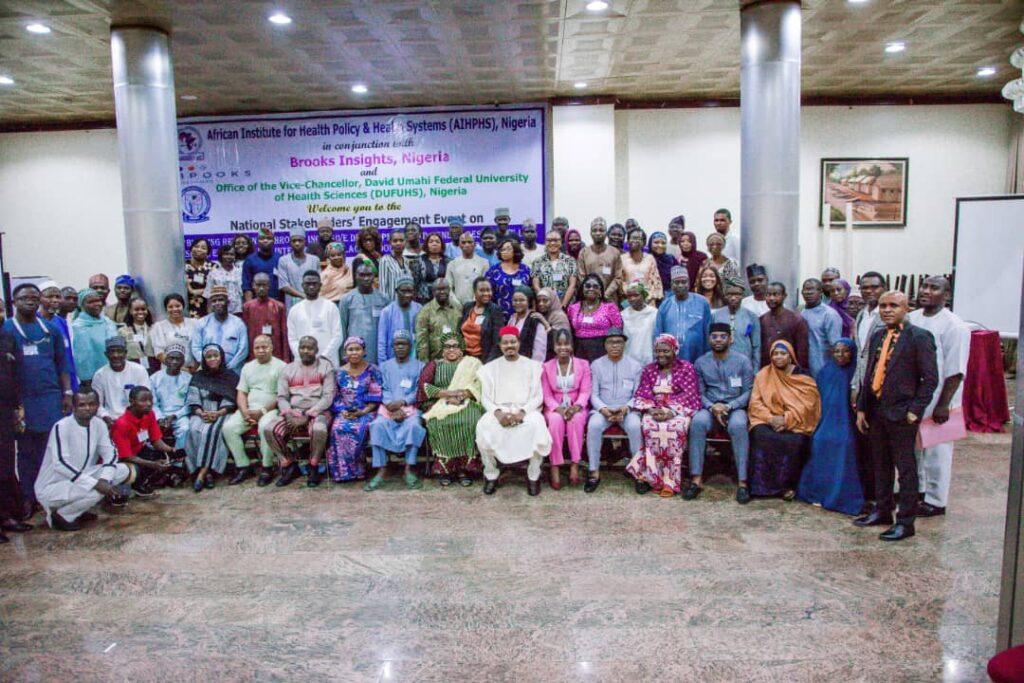A call has been made on the need to adopt evidence informed policy making process in the development of educational policy on Life Skills Education for Internally Displaced Adolescents in Nigeria.
This call was made by the Vice-Chancellor of David Umahi Federal University of Health Sciences Uburu, Ebonyi, Professor Jesse Uneke, during a national stakeholders’ engagement event in Abuja Nigeria on 13th March, 2025.
The stakeholders were drawn from various ministries, agencies of government, including Federal Ministry of Education, National Commission for Refugees, Migrants, and Internally Displaced Persons in Nigeria (NCFRMI), National Secondary School Education Commission (NSSEC), FCT Public Health Department, Federal Capital Territory Emergency Management Agency (FEMA), National Assembly Committees on Basic Education and House Committee on Internally Displaced Persons & Refugee, Representatives of Internally Displaced Persons among others.
The event was organized by the African Institute for Health Policy and Health Systems (AIHPHS) Nigeria and Brooks Insights Ltd under the auspices of the Global Partnership for Education Knowledge and Innovation Exchange (GPE-KIX) supported by the International Development Research Centre (IDRC) Canada.
Speaking on the project topic: “Building Resilience through Inclusive Development and Gender-responsive Life Skills Education for Internally Displaced Adolescents” (BRIDGE-IDAs)-Understanding the Evidence-to-Policy Reform Process, Professor Uneke, who is Principal Investigator of the project, reiterated the need to shift away from opinion-based policies and practices to a more rigorous, rational approach that gathers, critically appraises, and uses high-quality research evidence to inform educational policy-making, professional practice, and systems operations.
Speaking on behalf of the Co-Principal Investigators (Drs. Ejemai Eboreime and Chisom Obi-Jeff), the Project Coordinator Funmilayo Oguntimehin, noted that there are 3.3 million IDPs in Nigeria as of 2023, of which 60% are children/adolescents.
She further stated that Life Skills Education can provide adolescents IDPs with psychosocial, emotional, cognitive, behavioural, and resilience skills to navigate challenges, make informed decisions, and lead healthy, productive lives.
Read also: Cleric advises youths to embrace skills acquisition, shun internet fraud
Peter Obi advocates for inmates on skills empowerment
98 ex-militants complete specialised maritime skills acquisition training
The Director of Educational Planning, Research and Development, of Federal Ministry of Education, Mrs. O.J. Anigbogu, noted that the meeting was an important avenue for stakeholders to brainstorm on the development of a policy direction that will help the government to address the educational needs of and the internally displaced persons in Nigeria.
In an interview with some of the participants after the workshop, the women leader of Gongola IDP camp, Mrs John Stephen, said: `This workshop is very nice. If the government will deliver all that have said here, there won’t be IDP camps again. Our major challenge at the IDP camp is child abuse; some young girls are married at a tender age, because they can’t go to school; people are raping our young girls because of lack of education, lack of food, lack of healthcare and shelter. I am confident that this workshop will provide a solution so that everything will be okay.” she said.
Mr. Nwafor Kisito from the National Assembly, stated that the stakeholders’ engagement event was a welcome development, noting that the National Assembly has enacted a law that captures the welfare and needs of refugees, migrants, and IDPs.
On her part, Mrs. Ada Ogah, from the FCT Emergency Management Agency noted that the workshop was timely, saying that her office has been working with the IDPs for over ten years. She called on all stakeholders to do all that are necessary to improve the lives of the children, particularly the girls among the IDP educationally.
